If you were to search for at-home DNA tests online, 23andMe would likely be the first platform you come across. 23andMe has owned one of the largest DNA databases in the world since its launch in 2006.
Still, in light of the recently reported customer service and security issues, you may be prompted to explore other available tests. To aid in your research, we’ve created a list of the five best 23andMe alternatives. You’ll read about their testing methods, types and quality of reports, and pricing.
We’ll also introduce you to an alternative platform that takes DNA testing to the next level and uses cutting-edge sequencing technology to provide the most accurate and comprehensive health insights.
Why should you consider 23andMe alternatives?
23andMe offers at-home testing kits to discover your ethnicity and relatives from its database of over 12 million users. You can also get haplogroup analysis, tracing your paternal and maternal-line ancestors as far back as eight generations ago. Still, while 23andMe's findings are generally accurate on the continental level, they sometimes miss the mark when targeting specific regions.
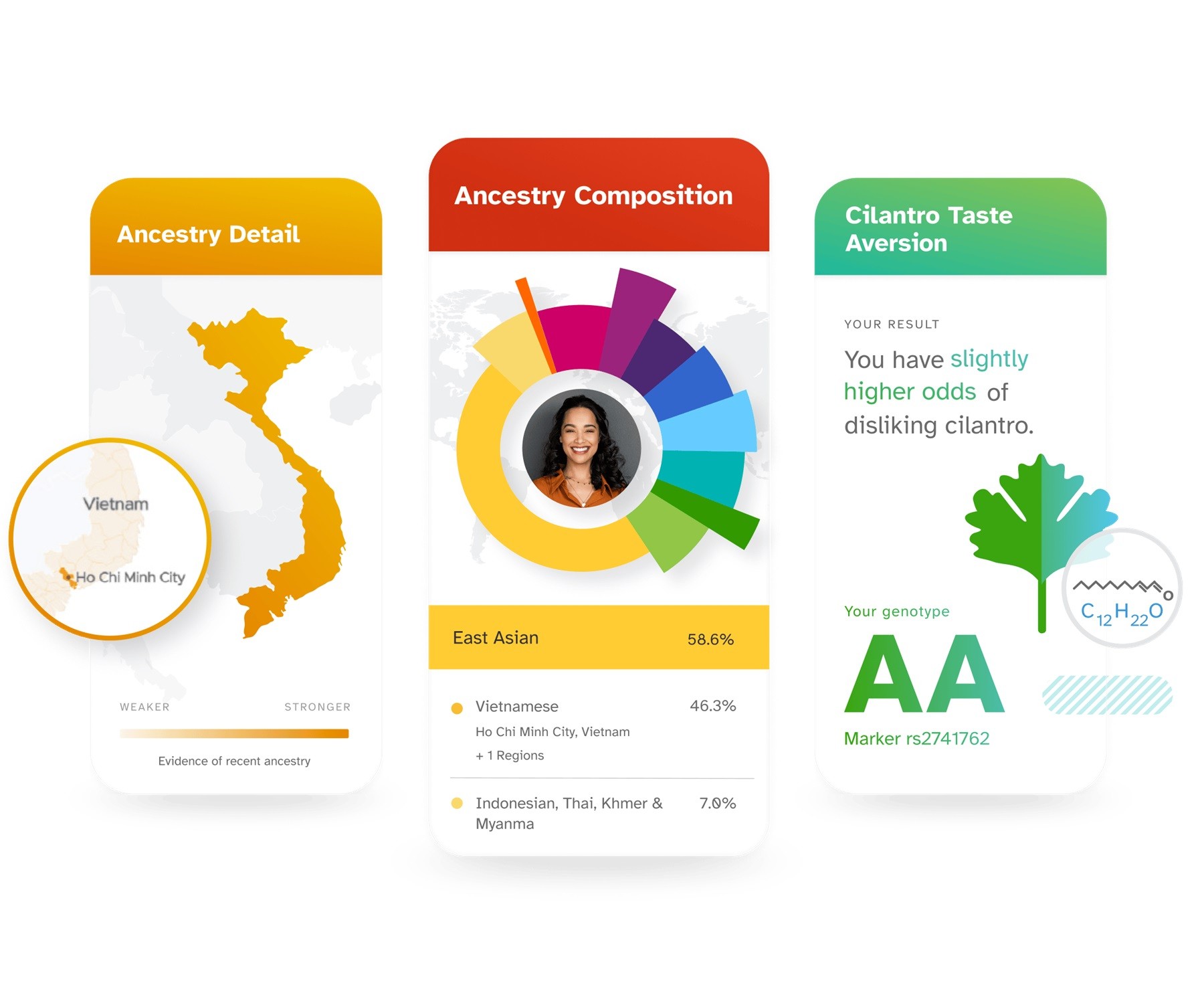
Source: 23andMe
Besides your ethnicity, 23andMe offers health reports that can reveal your susceptibility and carrier status for different diseases. That said, these reports are basic and limited as 23andMe uses genotyping technology to analyze only a small subset of your DNA.
While still widely used today, 23andMe suffered a severe data breach in 2023, which has raised doubt about the company’s security measures. As a result of these problems, many potential and existing customers are choosing to take their DNA research elsewhere.
Top 5 alternatives to 23andMe worth trying
Our DNA testing service research focused on platforms that offered insights similar to 23andMe’s, including ancestry and basic health or wellness reports. Here’s a brief rundown of our top picks:
Bonus read: Explore other health-oriented DNA testing services with our reviews:
1. MyHeritage
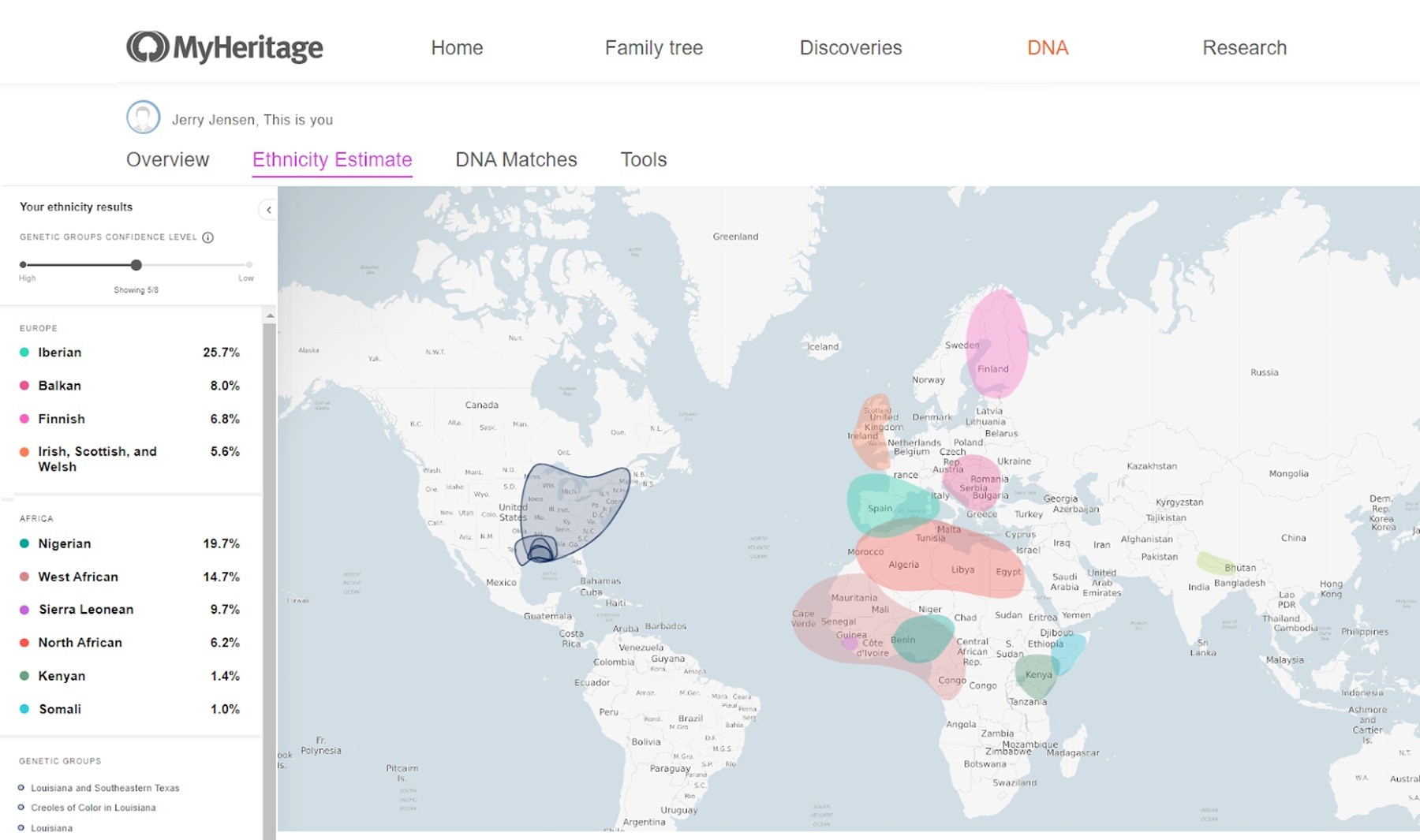
Source: MyHeritage
While a cheaper alternative to 23andMe, MyHeritage has a database of 8 million DNA records and can reveal the groups and locations you descend from among 2,100 regions.
That said, its ethnicity estimates are sometimes too broad and inaccurate and don’t provide information on haplogroups, so it can only target your recent ancestry. Still, MyHeritage makes up for these drawbacks with its intuitive platform and various useful genealogy tools, such as,
Family trees
DNA matches
Database of 20 billion historical records
The user base extends outside the U.S., especially in Europe, so it may provide more matches than 23andMe and Ancestry in select locations.
As for the health reports, while MyHeritage offers risk and carrier screening, it uses the same genotyping technology as 23andMe, so its insights are limited by nature. Because it analyzes only a portion of your DNA, MyHeritage may fail to detect some rare genetic differences (unique variants in your DNA) that signal an increased risk for a disease, giving you a false sense of security.
Like 23andMe, MyHeritage experienced a major data breach in 2017, which resulted in a leak of over 90 million users’ login credentials, but the company claims to have improved its security measures ever since.
MyHeritage pricing*
DNA kit: $89
Premium: $129/year
Premium Plus: $209/year
Data: $189/year
Complete: $299/year
Omni: $399/year
Free trial
*Excluding shipping
MyHeritage pros and cons
2. CRI Genetics
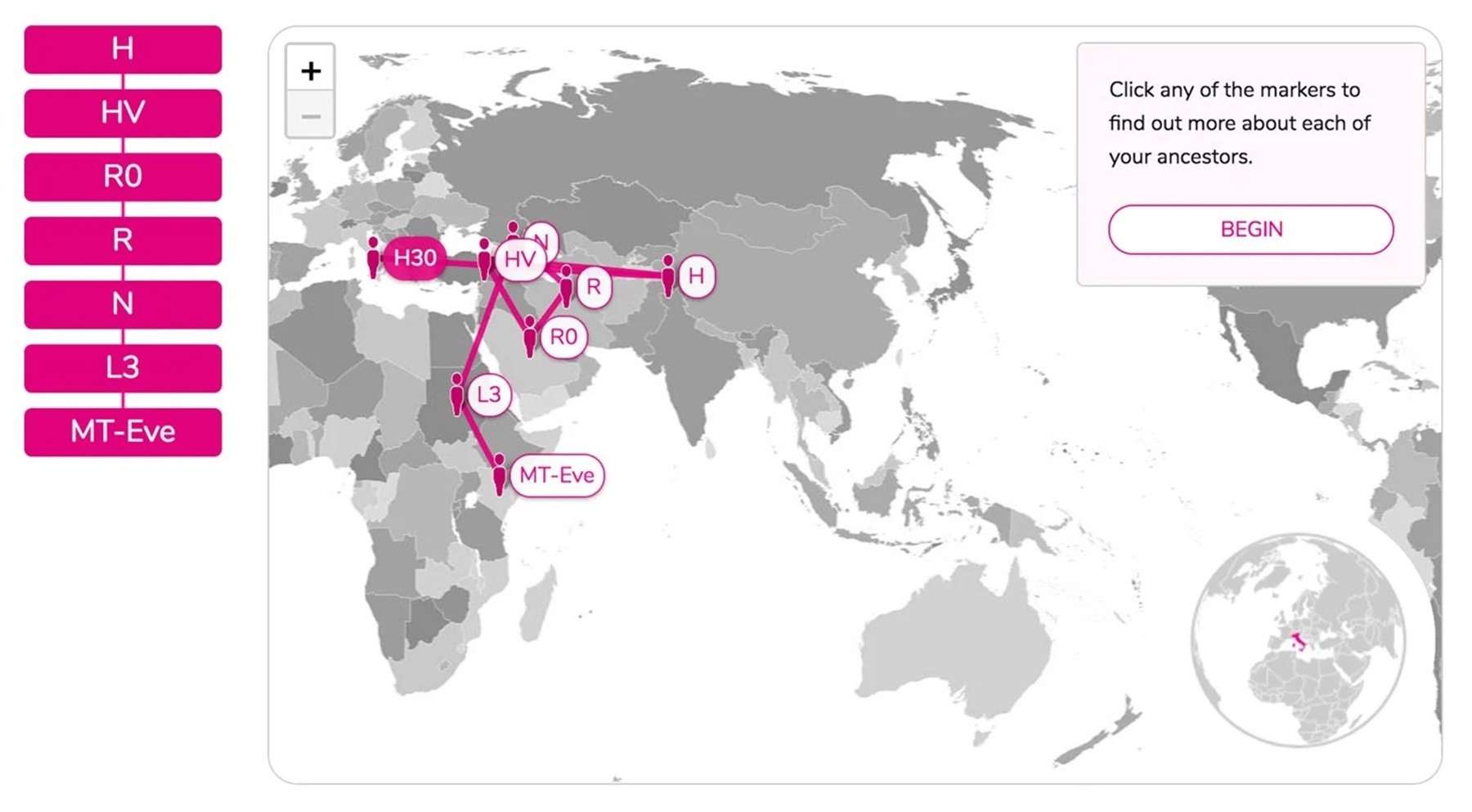
Source: CRI Genetics
Like 23andMe, CRI Genetics can analyze both your autosomal and sex chromosomes, the two types of structures in your DNA. Because of that, it can offer a wide range of genetic insights, including:
Your recent and ancient ancestry, going back up to 1,000 years.
The movement of your maternal and paternal ancestors throughout history.
Your genetic traits and where they came from.
Any famous people you may share DNA with.
While the ancestry reports are detailed, they are sometimes inaccurate, according to user reviews. This could be due to the smaller database it has for reference compared to more popular services like 23andMe.
CRI Genetics also offers trait and health reports, covering areas such as nutrition and energy, but it can’t reveal your genetic risks. It’s also worth noting that some reports require paying extra on top of the kit price, which may not be transparent from the start.
As for customer service, CRI Genetics offers an efficiency guarantee and promises a refund if your results don’t arrive within eight weeks of the lab receiving your sample. Still, some users claim that they weren’t able to reach customer support.
CRI Genetics pricing
Ancestry + Traits: $89
Health + Ancestry: $109
Note: CRI Genetics charges some reports separately as add-ons.
CRI Genetics pros and pons
3. CircleDNA
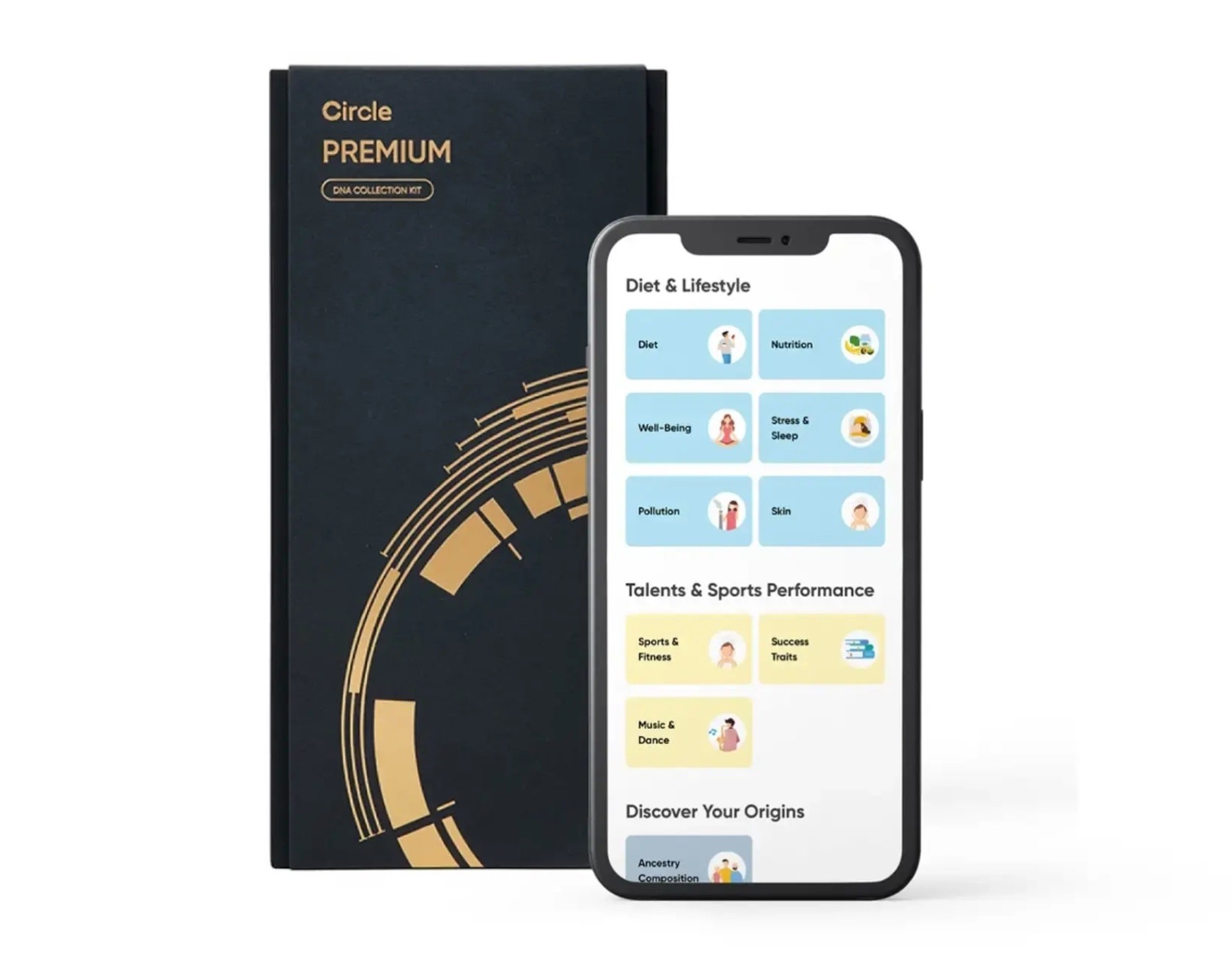
Source: CircleDNA
Formerly DNAFit, CircleDNA is a Hong Kong-based DNA testing company with a holistic approach to testing. CircleDNA provides over 500 reports across 20 categories, including:
Diet
Cancer screening
Family planning
Ancestry
Personality traits
With these reports come lifestyle recommendations and a free 30-minute consultation with a healthcare professional.
If ancestry is your primary interest, know that CircleDNA’s reports may be broad and misrepresent your ethnicity. They tend to be more accurate for people of Asian descent as they make up the majority of its user base.
Health and wellness reports are more extensive and accurate than those offered by 23andMe, as CircleDNA uses next-generation sequencing technology that reads over three million data points. While more advanced than genotyping, this approach still has too narrow a scope to produce a precise and complete health assessment.
Note that CircleDNA is more expensive than 23andMe and most other tests. This should come as no surprise considering its vast reports and sequencing technology, though some users think customer support could be better for the price.
CircleDNA pricing
Premium DNA Test: HK$2,495 (~$320)
Kids DNA Test: HK$2,399 (~$308)
CircleDNA pros and cons
Bonus read: Discover what we think of other DNA testing services:
4. SelfDecode
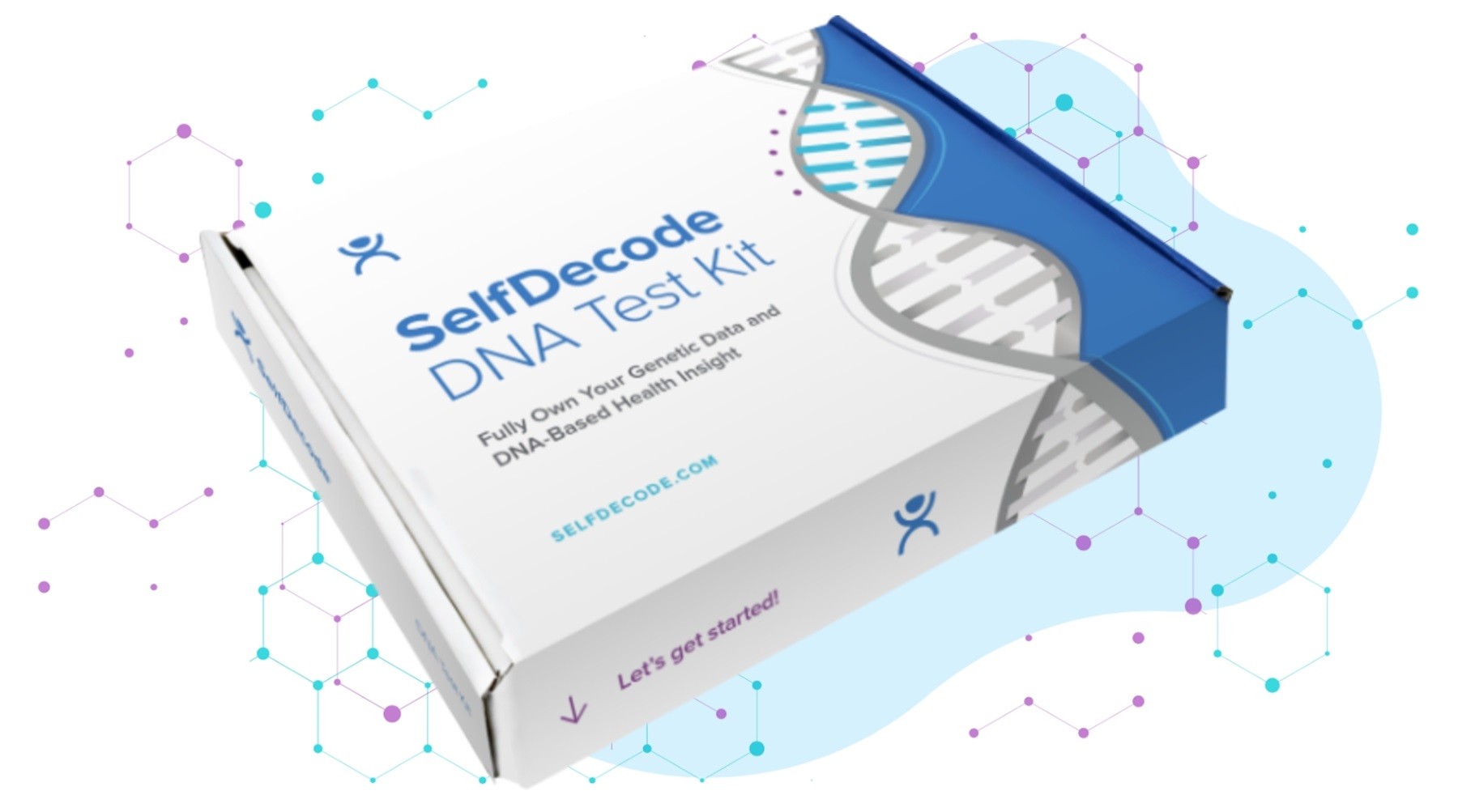
Source: SelfDecode
SelfDecode is a platform and app that focuses on health optimization. It features an AI health assistant that can create a tailored and actionable health plan based on your DNA, lab results, and survey about your current conditions, habits, and goals.
SelfDecode provides over 650 health reports and recommendations on nutrition, supplementation, and other adjustments. It also offers one-hour consultations during which you can discuss your lab and DNA results with a coach.
That said, SelfDecode doesn’t analyze your entire DNA, so it may fail to detect some rare genetic differences that indicate an increased risk for a condition.
For an extra fee, SelfDecode can also provide insight into your ethnicity and ancestry, including your maternal lineage. Like with many other DNA testing services, SelfDecode’s ethnicity estimates aren’t always accurate.
SelfDecode pricing
DNA Kit + Health Insights: $417, then $119/year
DNA Kit + Health & Ancestry Insights: $496, then $119/year
Health Insights (DNA file upload): $318, then $119/year
SelfDecode pros and cons
5. Living DNA
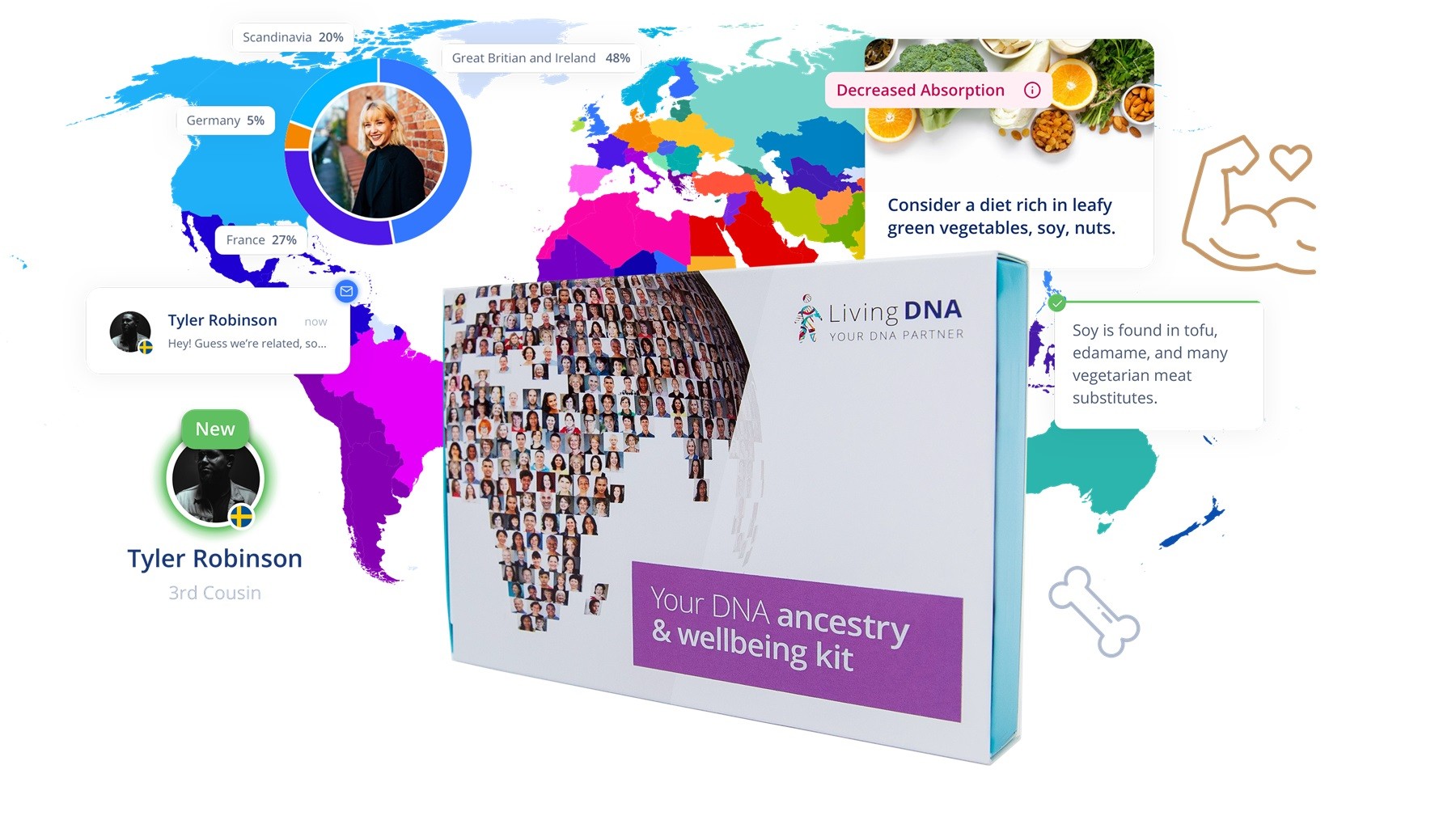
Source: Living DNA
Living DNA is a UK-based company that operates similarly to 23andMe, offering ancestry and haplogroup analysis. It specializes in African, European, British, and Irish ancestry and promises eight times the detail for the British Isles compared to other companies, which is why it’s a go-to option for many British users.
You can use Living DNA to connect with relatives, but considering its database is 40 times smaller than 23andMe’s, you shouldn’t expect as many matches. Because of the limited database and reference population, Living DNA may not provide precise and extensive ancestry reports. Customer reviews also suggest that ethnicity estimates often lean toward the European region.
Living DNA offers well-being reports as well, covering traits such as vitamin response, food metabolism, and exercise. Still, it doesn’t assess your genetic risks and uses limited genotyping technology, so it can only provide basic and superficial insights.
On the upside, Living DNA lets you upload data from 23andMe, Ancestry, and MyHeritage for free, so you can try it without committing.
Living DNA pricing*
Ancestry kit: $90
Ancestry & wellbeing kit: $188
Ancestry and Neanderthal kit: $130
*Excluding shipping
Living DNA pros and cons
Final verdict: What’s the best 23andMe alternative?
For those interested in ancestry and family history research, MyHeritage may be a better 23andMe alternative due to its vast DNA and historical record database and intuitive genealogy platform. Depending on your location, you may want to opt for services that target specific regions. CircleDNA, for example, gives more accuracy to people from Asia, while Living DNA has better coverage in Europe.
That said, none of these testing services are suitable for DNA health analysis. As they don’t capture the full scope of your DNA, they may miss crucial insights that can have a life-altering impact, giving you only a narrow and shallow understanding of your genetic health profile.
If you want a comprehensive DNA health analysis, opt for Nucleus Premium. This clinically validated, physician-approved test decodes nearly 100% of your genome using whole-genome sequencing technology. Apart from your DNA, Nucleus will also account for your lifestyle habits to give you a tailored and complete assessment of your genetic health.
Achieve full self-discovery with Nucleus Premium
Although as easy to take as direct-to-consumer tests like 23andMe, Nucleus Premium analyzes closer to 100% of your DNA, while most commercial tests cover only 0.1%. The use of cutting-edge sequencing technology allows Nucleus to target rare and high-effect genetic variants that can significantly influence your health but are often overlooked.
Nucleus reports will reveal whether your genes put you at risk of developing diseases and conditions, such as:
Rare cancers
Heart diseases
Neurological diseases
Mental health conditions
Nucleus also offers carrier screening, bringing to light any inheritable conditions that may run in your family.
Aside from your DNA information, Nucleus considers how your non-genetic factors like age and ethnicity affect your health. With this comprehensive approach, Nucleus can provide detailed reports with 99.9% accuracy. Although extensive, the reports are easy to understand and include actionable advice.
Through its partnership with SteadyMD, Nucleus can connect you with a board-certified genetic counselor who can suggest the best course of action based on your results.
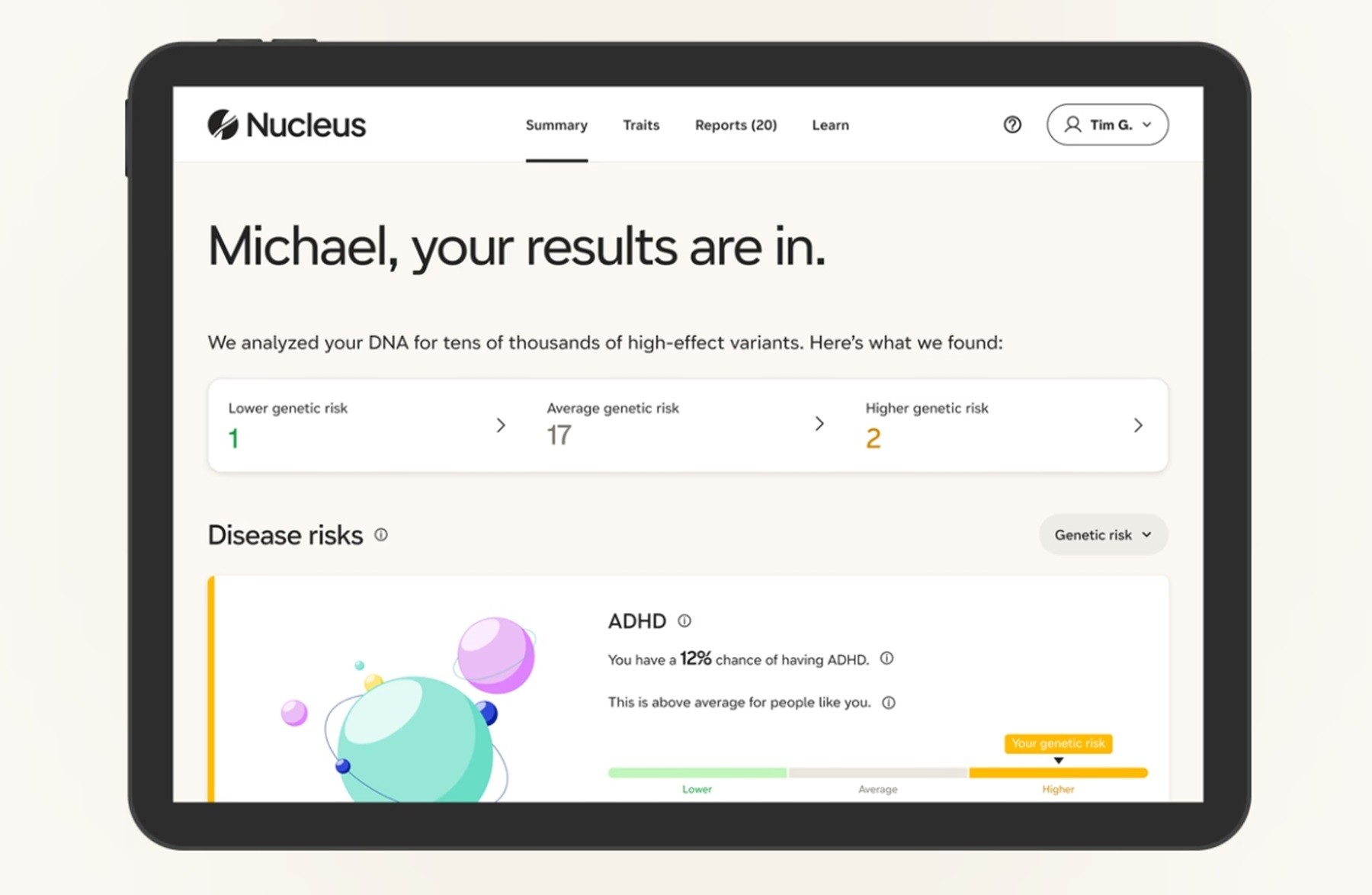
Source: Nucleus
Nucleus is fully regulated and dedicated to ensuring quality, accuracy, and security, evident by its collaboration with CLIA- and CAP-certified labs and compliance with HIPAA.
How Nucleus works
All reports are available for [PRICE.KIT_SOLO.ONE], which includes the Premium DNA testing kit and updates based on new research and your lifestyle factors.
Ordering the Nucleus Premium kit is simple, all you have to do is:
Provide your personal information
Place your order
Once you receive the kit, swab your cheeks to collect DNA and mail back your sample. You’ll receive the full report within six to eight weeks.
You may also like…
If you’d like to do some more reading on DNA testing, check out our other reviews of available services:
Featured image source: MV-Fotos












